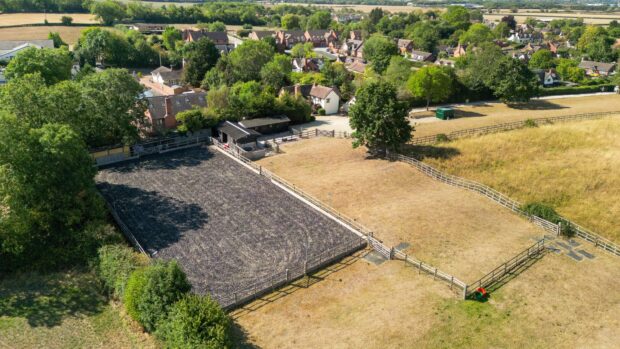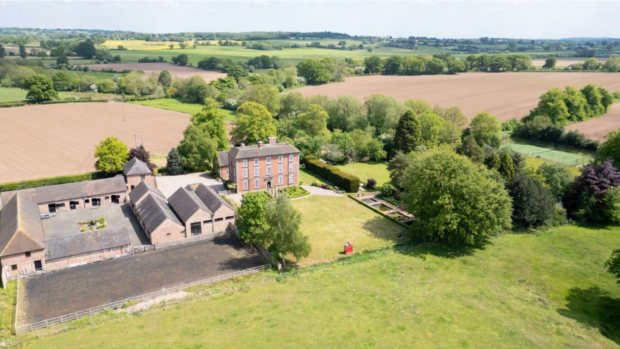Looking for an equestrian property? Check out the H&H property database >>
When former Horse & Hound hunting columnist Willy Poole announced his move to France last May, shockwaves rippled through the horse world. After all, Britain has traditionally been a riders’ Mecca and anyone with competitive ambitions or an eye for horses came to these shores.
But things are changing. While the influx of foreign buyers is as steady as in the past, an increasing number of Britons are moving overseas. The hunt ban is partly to blame for this migration. Although its impact has been far less dramatic than people feared, Poole is hardly the only aficionado to depart over-legislated Blighty for the blessedly old-fashioned French hunts.
The prime destination is the countryside around Pau, in the Pyrenees foothills, where France’s foremost pack resides. British-style hunting first appeared in Pau in the 19th century, courtesy of Lord Oxenden. But the hunt really shot into the limelight last year when it pitched itself as the real alternative for deprived Britons, offering drag, stag and proper foxhunting.
The local masters did a great job of promoting this corner of south-west France to the British public, even hiring former Cottesmore whipper-in Andrew Reed. Add to this that Pau is well served by Ryanair with direct flights into London Stansted and that property prices, although rising, are competitive with Britain, and it is easy to see why several British hunt followers are looking at the area.
“There are some for whom quarry-hunting with a full pack of hounds is the only way to hunt,” says Guy Sherratt of the eponymous estate agent.
However, he adds: “The price of land is probably the more significant factor in people moving overseas. Riders here want more accessible land to ride over but find that increasingly difficult to obtain here. They are unable to make a move within England and get the amount of land they want at a reasonable price.”
According to William Grant of Fox Grant in Somerset, some 20% of his customers leave the area and move either to affordable Wales or to France, Spain and New Zealand.
Zoe Napier of Fenn Wright in East Anglia has seen a similar trend. “The sale of many country properties in the UK allows for the release of considerable equity — considerably higher than for the same size property abroad,” she says. “This money allows the vendor to purchase a decent home abroad and retire on the residue.”
If south-west France caters for the hunting crowd and value-conscious buyers with an eye for Europe’s best attractions, the northern end of the country is particularly sought-after by racing trainers and breeders, who have been buying studs in Normandy for some time.
“The racing world has always been interested in France, particularly in Normandy,” says George Windsor Clive, of Windsor Clive International.
Buyers there are chiefly British breeders attracted by the competitive prices of local stud farms and the conspicuous breeders’ premium attached to horses reared in France.
Windsor Clive finds France by far the most popular country with equestrian buyers — and particularly with competition riders — because they are attracted to the idea of living in a very central location.
“They want to be close to the hub, either around Paris or on the German/Dutch border. If you’re competing, you want to be within range of a good motorway,” he says.
Some equestrian lifestyle buyers choose the sunnier climates of the Iberian peninsula, while for those who want to get away from it all within a reasonable budget, the destination of choice is New Zealand. The country has land aplenty, decent house prices and a reputation for excellent riding. But, warns Napier, “they have tightened their requirements for immigrants”, so it is worth keeping an eye on the rules.
If you are planning to join the expat ranks, finding the right place to live is only the beginning. Plenty of due diligence is de rigueur before you commit to buying a home. If moving between countries is important, for example, find out what sort of transport links are in place between your new home and your old one, and take into account possible disruptions — a number of buyers have been burned in the past few years when low-cost airlines discontinued some routes.
More importantly, you must look carefully into the home buying process, as each country has different customs and laws governing sale, taxation and property capital gains.
After you have researched yourself to exhaustion, it is time to think about how you and your horses will settle abroad.
Paradoxically, the horses are likely to have the easier time. With the exception of severe weather changes and very long journeys, a move to France or even Spain won’t affect them much more than if you went to, say, Scotland. You just need to ensure comfortable stables are ready to receive them in their new home, that you have sorted out everything from farriers and vets to any health and vaccination requirements, and that you keep the journey gentle, preferably by employing a professional horse transporter.
“The keynote here is advance preparation,” says Sherratt. “Ali O’Brien of O’Brien & Wildman, near Crediton, who has long experience of exporting horses, says you must bear in mind that each country has its own health criteria for the importation of horses. The time taken for the different tests can vary, so it is very important to make early enquiries via DEFRA to find out which ones will be required for your livestock. Don’t delay either with obtaining quotes for transport, as you will want to reassure yourself of journey times and welfare issues.”
Once at your new home, help the horses adapt to their surroundings by following their old routine.
But when it comes to the humans, moving abroad is an altogether more complex matter. Think long and hard about how you will support yourself and crunch the numbers to check whether it is feasible. Make sure you are ready to learn the language of your new country, and preferably have a smattering of it before you move.
Most of all, give some thought over whether you will be able to adapt to a different way of life. Even in this era of global living, moving to another country always entails a degree of culture shock.
Looking for an equestrian property? Check out the H&H property database >>



